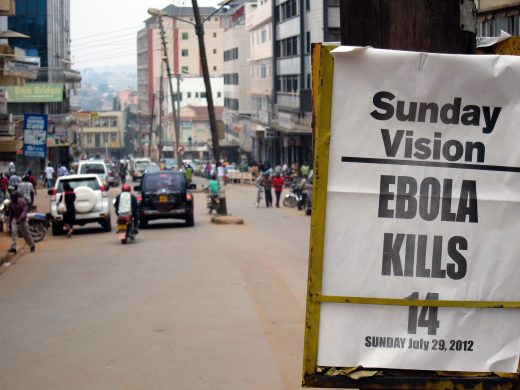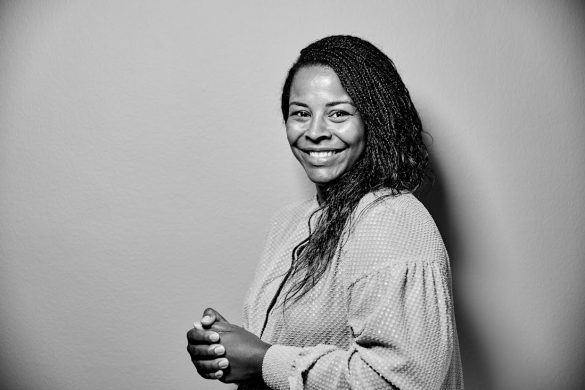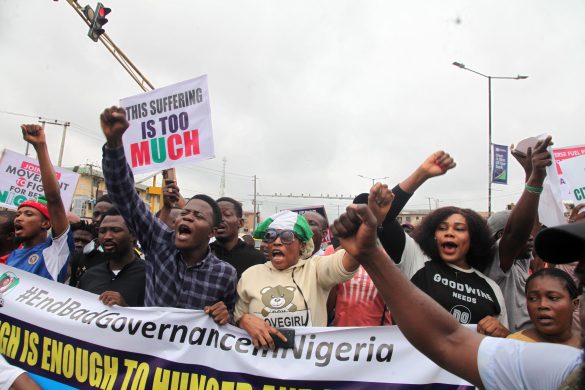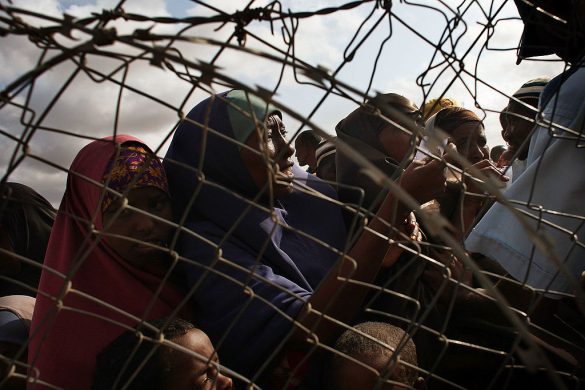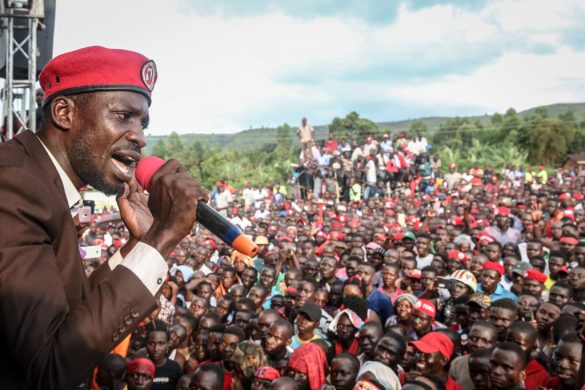KAMPALA, 3 November 2018 (WHO): Uganda has finalized plans to vaccinate frontline health workers in Uganda against Ebola virus-Zaire which is currently affecting parts of the Democratic Republic of Congo (DRC).
According to the Ministry of health, vaccination will start as soon as next week in the high-risk districts bordering DRC.
In a press briefing held today at the Uganda Media Center, the Minister of Health, Dr Jane Ruth Aceng, assured the public about the safety and effectiveness of the vaccine whose use has been necessitated by the heightened threat of importation from across the border.
A total of 2100 doses of the rVSV-ZEBOV Ebola vaccine are already in the country and will be administered using the compassionate approach.
“The purpose of the vaccination under the compassionate strategy is to offer access to the rVSV vaccine to health care workers and frontline health workers and offer protection against Ebola Virus Disease (EVD) in the context of the current EVD outbreak in DRC,” Dr Aceng said.
Kendt læge blev smittet og døde af ebola
The intention is to protect frontline health workers from getting infected in case Uganda gets a confirmed case of Ebola Virus Disease (EVD).
This particular vaccine is currently being administered in DRC and is highly protective and has demonstrated potency against Ebola virus-Zaire.
In previous EVD outbreaks, Uganda lost health workers including the renowned Dr Mathew Lukwiya as they cared for patients.
Scientists believe such invaluable lives would have been saved had a vaccine been in existence then.
Dr Aceng pointed out that Uganda remains at high risk due to cross-border movements that are high traditionally due to visits to relatives and now even higher as the populations look out for safety, trade and medical services.
In the event that there is a confirmed case in Uganda, the ring vaccination strategy will be implemented to reach high-risk individuals and communities.
Health workers will define several layers of contacts also known as contacts, contact of contacts and vaccinate them.
These are people most likely to be infected with the virus and they usually include health workers, family members of EVD patients, their neighbours and friends.
Uganda er godt rustet mod sygdommen
The World Health Organization (WHO) Representative in Uganda, Dr Yonas Tegegn Woldemariam informed the members of the press that indeed the country is going to vaccinate health workers before an EVD case is confirmed.
“In previous Ebola outbreaks, many lives of health workers were lost and it is important that they are protected this time round”, he said.
He pointed out that Uganda stands out because it has a robust surveillance system that is on high alert to easily detect diseases. This is critical in any outbreak preparedness and response.
Dr Woldemariam informed the media that apart from the planned vaccination exercise, the Ministry of Health with support from WHO and other partners continue to implement preparedness activities in 22 high-risk districts bordering DRC.
These include coordinating the preparations, surveillance, contact tracing, laboratory capacity, Infection Prevention, and Control, clinical management of patients including psycho-social care, risk communication and community engagement, safe and dignified burials and cross-border surveillance.
As of 2 November 2018, there were 287 cases, with 252 confirmed cases and 35 probable cases including 181 deaths. In addition, 39 suspect cases were under investigations.

